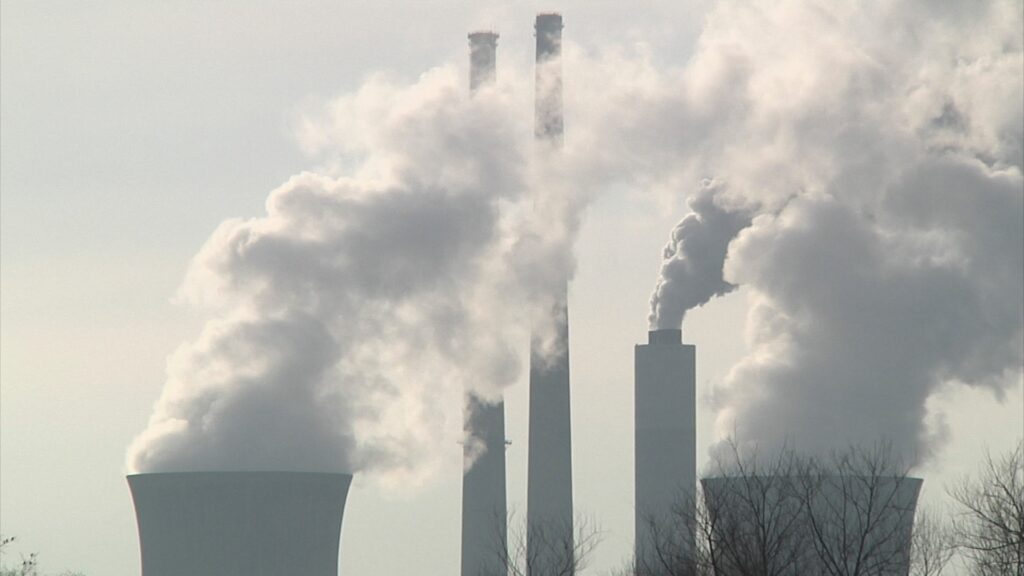Late last month, the West Virginia Public Service Commission signed off on a proposal to keep the Pleasants Power Station from shutting down at the end of May. Consumer and environmental groups, large industrial users and even the PSC’s Consumer Advocate testified against it.
Karan May, the senior campaign representative in Central Appalachia for the Sierra Club, was present at the hearing that preceded the PSC’s decision. She spoke with Curtis Tate about it.
This interview has been edited for length and clarity.
Tate: What would you like to see going forward?
May: What we’re interested in is making sure that public participation is available, and that we’re not on a short timeline. We think that people need to be able to submit comments online certainly, but we think that we should have hearings across the service territory. Folks should be able to come out in the evening, not have to take off work and let the commissioners know what is going on with them, and how rising power bills affect them.
Tate: The PSC public comment hearing was hours away from many Mon Power customers. Did that discourage their participation?
May: While I commend the commission for scheduling a hearing, I think anytime that there’s a public hearing, that’s a good thing, but for folks to have to travel, say from Potomac Edison territory, that could be a five-hour drive. And to do that, at a time when most folks are working. In fact, some of the speakers who did come and speak out in opposition were retirement-age. I think that that’s telling. In 2017, when Pleasants was proposed for a transfer before that transfer was rejected, the commission scheduled three hearings, and those were in Morgantown, Parkersburg and Martinsburg. And people really turned out.
Tate: Did it seem like there was a bit of a disconnect with the commission when Mon Power stated it had no interest in operating both Pleasants and the Fort Martin Power Station?
May: Well, the interesting thing to me is that the company is kind of saying that it’s a wash, whether you have Fort Martin open or whether you bring Pleasants on and retire Fort Martin. So the problem with that would be, what are the ratepayers going to have to bear to get to that answer? First of all, if you have a commission that is pointing to issues of reliability and certain legislation, that seems to be an indication that we’d be having an argument about Fort Martin retiring. It seems to me that the commission and the companies aren’t personally at odds, but the outcomes that they might be looking for, or looking at, seem to be at odds. And the truth is that Pleasants has been slated to be retired. PJM could have said, ‘We need that plant to stay online for reliability,’ and they haven’t. I just think that this is propping up an uneconomic coal plant that has been scheduled to close, and the customer shouldn’t have to pay for that.
Tate: There is so much federal money available from the infrastructure law from 2021 and the climate bill last year to support coal-affected communities. Isn’t this the kind of opportunity to use it?
May: We’re at this moment where West Virginia is poised to really benefit from this massive federal investment in the form of the IIJA and the Inflation Reduction Act. And if our policymakers and policies continued to hew closely to 40-year-old power plants, powered by coal, I think we’re gonna miss out on the true transformative nature of those dollars.
It’s not like a transition is without challenges, but when you think about the folks who did develop and work in the mines and met the challenges of the industrial age, it’s not like we can’t do it. And it makes me sad that we’re kind of… it feels like we’re stuck, and it feels like it’s gonna cost regular people money. We’re a state where we have people on fixed incomes, we’re a state that’s older generally. And it doesn’t seem fair to me.
Tate: Anything else you want to add?
May: I hope to hear more from the Consumer Advocate. I think that that’s who’s charged in these proceedings with watching out for residential ratepayers. I was certainly happy to hear from the Energy Users Group, and they are going to be impacted by rising rates, perhaps in a way that is detrimental to the economics of the state. When the commission talks about balancing the economy of the state and kind of talking about that in relation to coal, I just think that we’re missing out on the bigger picture of corporations who want to come in and have access to renewable energy, and the jobs that can be gained through energy efficiency and other provisions of the IRA. I just think there are so many facets of this transition that could really help West Virginians, and we’re just not seeing it.






















